Introduction
In-depth expertise and strategic execution are paramount in the realm of business consulting. When your operation faces complex challenges, it's essential to pinpoint precisely where a business consultant's specialized skill set can drive impactful change.
This article will explore the importance of understanding your business needs and identifying the right consultancy services. It will provide practical advice on researching consultancy services, evaluating expertise, checking credentials, reviewing case studies, comparing pricing models, ensuring compatibility, conducting interviews, making informed decisions, and implementing the consultancy smoothly. By following these steps, CFOs can confidently select consultancy services that align with their company's goals and drive long-term success.
Understanding Your Business Needs: Identifying the Right Consultancy Services
In-depth expertise and strategic execution are paramount in the realm of business consulting. When your operation faces complex challenges, it's essential to pinpoint precisely where a business consultant's specialized skill set can drive impactful change. Consider, for instance, the narrative of a cybersecurity company called Doctor.
Initially, Doctor's support team was stretching their limits, juggling customer troubleshooting with time-sensitive documentation in multiple languages, all without standardized procedures. By identifying this specific need, Doctor wisely brought in a specialist who not only relieved the support team's burden but also standardized documentation for improved operational efficiency. Your business could likewise benefit from such targeted expertise.
A business consultant shines a light on intricate situations, leveraging deep knowledge in vital domains like marketing or finance to shepherd your company toward its goals. This mastery encompasses analyzing data, conceiving robust strategies, and effectuating intricate plans. Business consultants become a beacon, guiding through turbulent times to innovative solutions.
Harnessing the power of a consultant can yield potent advantages like fresh insights and objective advice tailored to the nuances of your operations. Business owners must assess their current landscape with a critical eye, just as Dectar did, to identify the gaps and opportunities where consultancy services would be most beneficial. Only then can they navigate the marketplace for consultancy with precision, ensuring the external collaboration is not just a monetary transaction but a genuine intersection of expertise aiding the journey toward business innovation and growth.
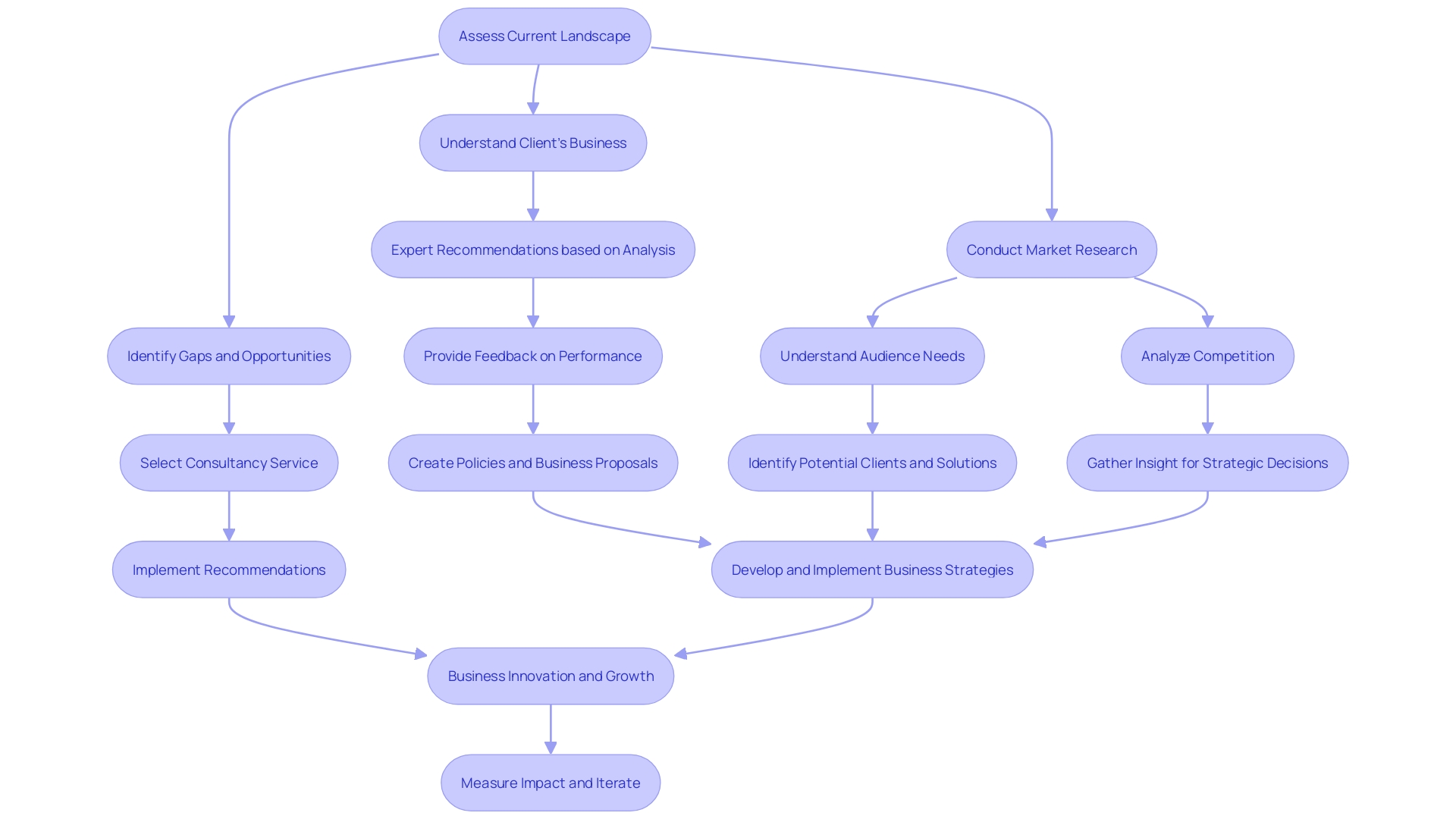
Researching Consultancy Services: Factors to Consider
When selecting a business consultancy, it's crucial to assess their depth of experience and track record of success. A wealth of expertise in areas such as sales strategies, marketing campaigns, and financial management is essential. Seek evidence of their capacity to steer organizations towards improved performance and strategic achievement.
A reputable consultancy will not only have commendations from clients but will showcase detailed case studies mirroring your firm's needs. For instance, consider the Digital Service Team's methodical approach in evaluating technology requests within the NHS. They ensure the prospective technology is secure, meets compliance, and doesn't duplicate existing solutions.
This meticulous diligence reflects the value of a consultancy service that prioritizes understanding the unique context of a business before proposing solutions. Comprehensive small business consulting can serve as a growth catalyst, offering bespoke advice, market insights, and in some cases, workforce augmentation. Companies like Virtusa Corporation exemplify this by embracing a digital engineering approach, favoring practical implementation from the get-go, and leveraging their generative AI tool – Virtusa Helio – to provide evidence-based consulting services.
Keep in mind the words of industry analysts who caution against seeing technology as a panacea for procurement challenges. Instead, focus on consultancies that emphasize stakeholder communication and collaboration, which are pivotal for e-procurement success and go beyond mere software tools. Seek out expert guidance from consultants who understand the multifaceted nature of business challenges and who can provide the objective perspective necessary to propel your business forward.
Evaluating Expertise: Assessing the Consultancy’s Capabilities
Harnessing the expansive applications of data science and artificial intelligence requires more than just a passing familiarity with the technologies. When scouting for consultancy services, your primary filter should be their proven proficiency in your domain.
Dig deep into prospective consultants' historical performance in similar scenarios—do they have a commendable record of navigating the intricate challenges akin to those you face? From predictive maintenance to fraud detection, AI can significantly elevate your business; thus, the consultants you invite onboard must not only propose cutting-edge solutions but also have a concrete understanding of your industry's dynamics.
Reflect on your existing operational framework and identify where AI can turn the tide in your favor. Can pinpointed data insights propel you ahead of the competition, or will AI-driven automation unlock untapped revenue streams? By anchoring these pivotal questions in your evaluation, you're better positioned to select a consultancy that aligns tightly with your strategic ambitions and can contribute tangibly to your success.
Checking Credentials: Verifying the Consultancy’s Qualifications
Choosing the right consultancy service necessitates due diligence. Seasoned consultants in the financial sector understand that presenting technical data must be both digestible and engaging.
Take Nets, a formidable force in digital payment solutions, which tackled the industry's heavy reliance on elaborate data by simplifying complex information into more user-friendly formats. Similarly, a competent consultancy service exhibits strength not only in finance, strategy, and organizational development but extends its expertise into transforming how information is conveyed and actions are executed.
When selecting consultancy services, it is crucial to assess their prowess in strategic planning, project management, and information technology. Their ability to offer practical solutions and adaptive strategies in sales, marketing, and financial management reflects their competence.
With businesses operating in tightly regulated spaces, where compliance with KYC and anti-money laundering standards is mandatory, it becomes more important than ever to align with consultants equipped to navigate these intricacies. A consultant's education, practical experience, and advanced training are invaluable. Also critical is their capacity to bridge knowledge gaps, improve operational practices, and contribute to a company's enduring success. As businesses labor to optimize their operations and staff productivity, reinforcing their teams with the right consulting expertise serves not only to address immediate challenges but to fortify their long-term strategic objectives.
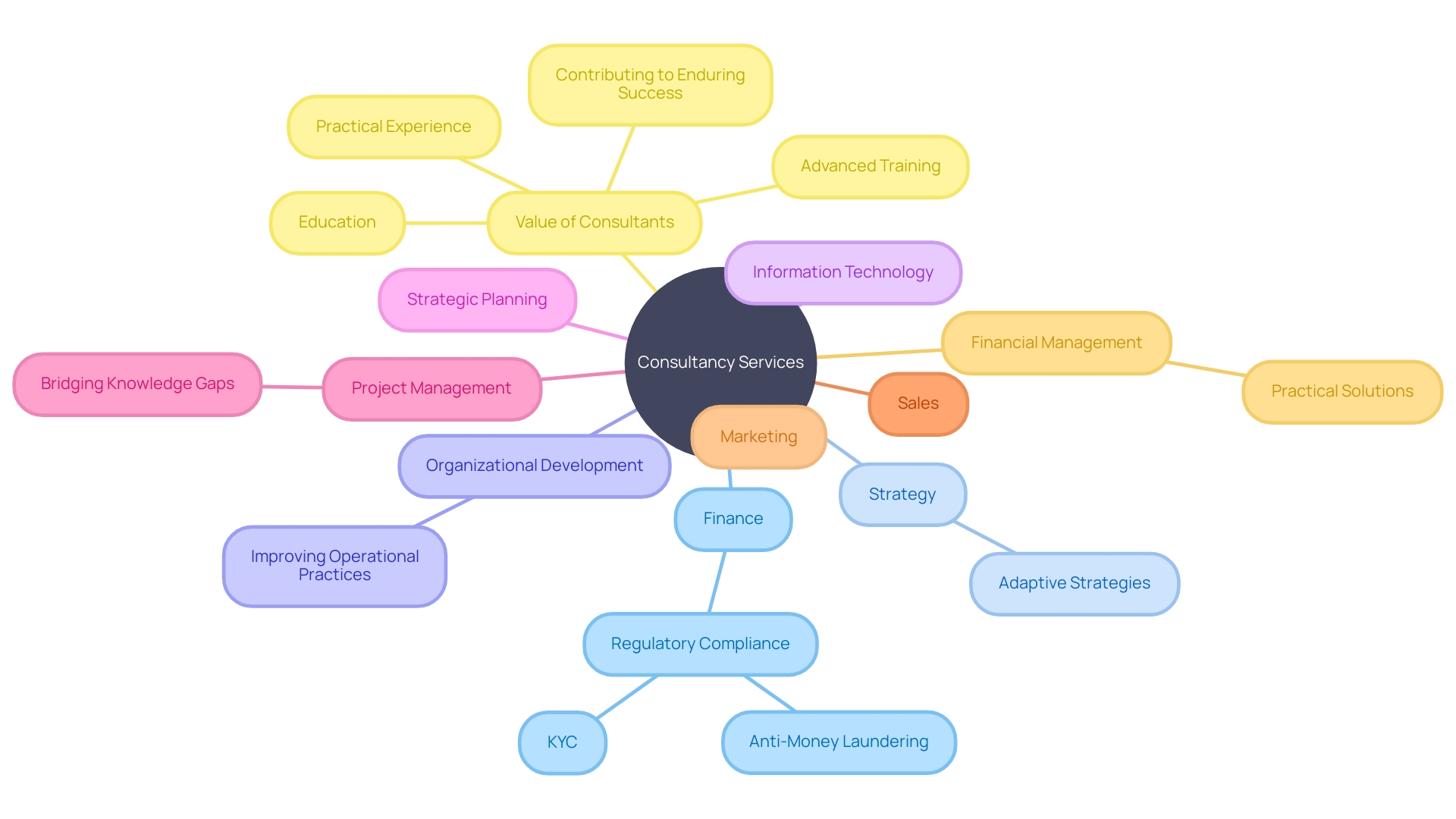
Reviewing Case Studies: Understanding the Consultancy’s Track Record
Navigating the complex landscape of digital solution implementation requires more than just a familiarity with technology; it demands an in-depth understanding of the methodology and stakeholder collaboration necessary to address the core issues at hand. This principle is vividly illustrated by the experiences of Nets, a seasoned provider of digital payment solutions. When faced with the challenge of making dense technical data comprehensible, they didn't just reorganize information; they reinvented the presentation to spur user engagement and discovery.
Karmela Peček, an Instructional Designer at eWyse Agency, raised the point that companies ingrained in the financial sector must often institute comprehensive training programs to comply with stringent regulations such as fraud prevention and Anti-Money Laundering. Nets' method—transforming conventional tables and schemes into captivating new formats—exemplifies a successful training initiative that resonates with new hires and compels them to immerse themselves in the learning process. Moreover, a Practitioner-Authored Case Study highlights the potential ineffectiveness of e-procurement initiatives when technology is positioned as the primary solution rather than the facilitator of results.
This echoes the sentiment that in the realm of digital procurement success, technology's role is subordinate to that of effective stakeholder communication and collaboration. It's essential, then, for businesses seeking consultancy to not only evaluate past projects and outcomes but to delve deeply into a consultancy's approach—understanding how they have innovatively solved client problems and cultivated stakeholder involvement. Virtusa Corporation, a global digital solutions firm, showcases an 'Engineering First' mindset, emphasizing the importance of pragmatic execution from the get-go, thus ensuring impactful and sustainable results for large-scale enterprises.
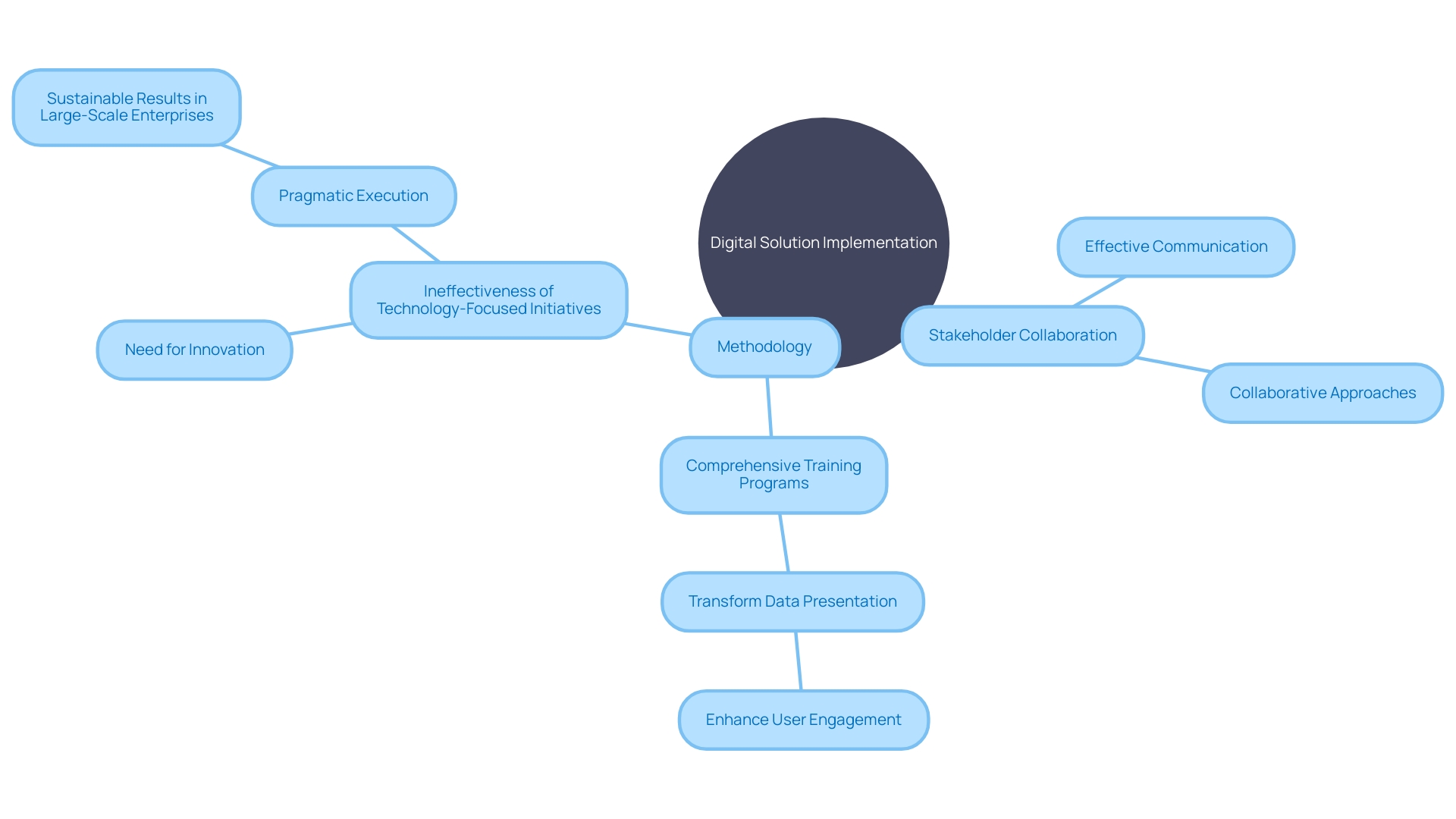
Comparing Pricing Models: Finding the Best Fit for Your Budget
Embarking on the deliberation of consultancy service fees, it's paramount to not just consider the financials but the inherent value that aligns with your specific needs. A crystal-clear understanding of the cost structure is imperative, ensuring there are no hidden expenses beyond the upfront fees.
The saga of AnyCable Pro's transition into a value-focused pricing model illuminates the journey from a one-size-fits-all to a framework that mirrors customer value creation. This evolution mirrors a market-wide recognition that value pricing, albeit complex and not entirely attainable, is the benchmark to strive for.
It caters to diverse enterprises, from fledgling startups to expansive organizations, by encapsulating a spectrum of user engagement levels, from base services to premium offerings. For those who spearhead tools, platforms, and services that fluctuate in consumption, it's essential to reflect the dynamic value provided to customers. As iterated by industry discussions, the pursuit of software estimation is labyrinthine, due to the uniqueness of each solution. This vista underscores the necessity to shun decisions based solely on the appeal of low costs, gravitating instead towards pricing strategies that encompass the dimensions of customer usage and provide a transparent path to scaling alongside value generation.
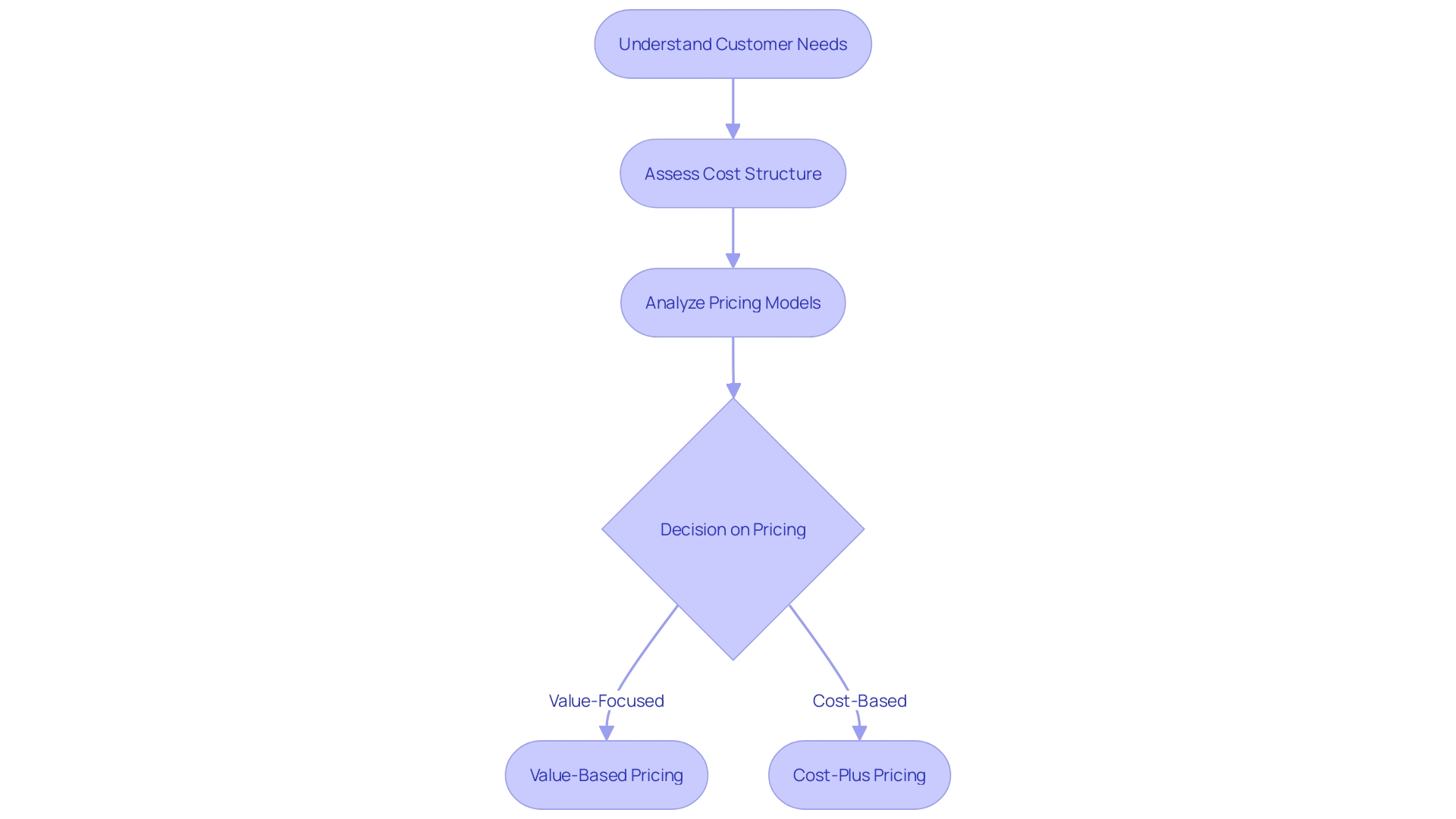
Ensuring Compatibility: Assessing the Consultancy’s Cultural Fit with Your Business
When seeking consultancy services, particularly in the realm of software technology, one often overlooked yet essential factor is the alignment of the consultancy's values and work culture with that of your business. It's not uncommon for a business to bring in consultants during challenging times—generally when there's a complex problem that internal teams are struggling to solve.
Despite having technical competencies, these internal teams might lack certain specialized skills or the strategic acumen needed to address pressing issues effectively. Such situations underscore the importance of sourcing consultants whose approach to problem-solving resonates with your organization's ethos. It goes beyond mere technical expertise; it's about a seamless integration where the consultancy's communication style and work methodologies act in concert with your team's efforts, optimally leveraging their existing capabilities.
Conducting Interviews: Asking the Right Questions to Find the Perfect Consultancy
Identifying the expertise and proficiency of business consulting services is a critical step to ensure alignment with your company objectives. Set up interviews, armed with incisive questions that illuminate the consultants' familiarity with your industry and the unique challenges your business faces.
Explore their problem-solving methodologies and how they keep lines of communication open. Specifically, delve into their experience with digital technology implementation, emphasizing the avoidance of unnecessary redundancies.
A lesson from the NHS exemplifies the importance of this due diligence, revealing that many sought-after tech solutions were already in place but previously undiscovered. On a broader scope, a business consultant should not just be technically proficient but also adept at interpreting data, and capable of serving as a guiding beacon in strategic planning, financial oversight, and project management.
Their innate understanding of how to navigate through multifaceted business landscapes is invaluable. Furthermore, the recruitment process should consider their education—typically at least a bachelor's degree in business administration—and evaluate any additional qualifications like a master's degree or a certified management consultant credential. Their track record should illustrate a solid history of consulting, coupled with proficiency in project and business management software, offering actionable insights, not just technology-focused solutions. By prioritizing these factors, you can secure consulting services that surpass mere technical support, offering comprehensive, strategic guidance that aligns with your business's long-term goals and operational needs.
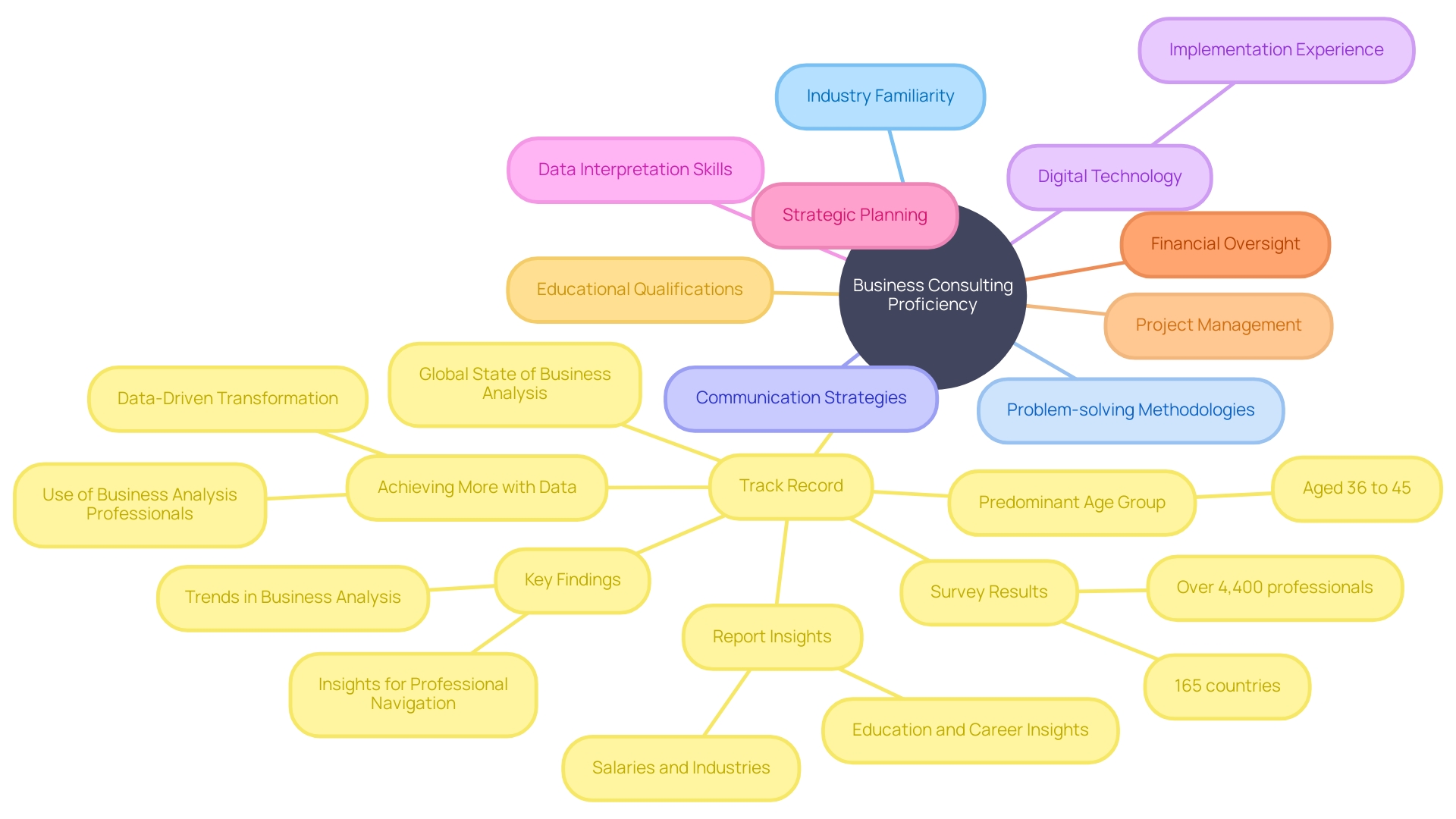
Making the Decision: Weighing the Pros and Cons of Each Consultancy
Decision-making in consulting procurement is a precise and complex process, requiring a balance of knowledge, experience, and strategic insight. It's imperative to go beyond the surface and rigorously evaluate each consultancy's previous engagements.
Scrutinize the depth, diversity, and the technological sophistication of their previous projects. Virtusa Corporation exemplifies this with a digital engineering-centric approach that integrates actionable solutions, underpinning their success in serving Forbes Global 2000 entities across industries.
When assessing potential consultancy partners, factor in their demonstrated success through case studies and client testimonials. Procuring a consultancy that has already navigated the terrain of your specific industry, such as healthcare with its intricate digital product needs, can be pivotal.
This exactness can be gauged from their portfolio and understanding of your sector's nuanced demands. Remember, it's not merely about aptitude - it's also about alignment. The consultancy team's qualifications, credentials, and industry experience should resonate with your project's objectives and cultural ethos. Also, a diligent inquiry into their track record with prior clients, focusing on reliability, communication, and adherence to agreed timelines and budgets, is indispensable. Ultimately, this exhaustive vetting process, corroborated by the latest market research, will reveal the consultancy that not only promises but can also deliver tailored, measurable outcomes that advance your strategic goals and contribute robustly to your brand's growth.
Implementing the Consultancy: Ensuring a Smooth Onboarding Process
When integrating a consultancy service into your company, it’s essential to orchestrate an efficient onboarding system. Outline your vision, in clear terms, the outcomes you desire, and corresponding deadlines.
Cultivate consistent communication pathways and establish straightforward protocols for updates and reports. Equip the consultancy team with the tools and support they need to effectively advance your objectives.
Keep a vigilant eye on the progression of their efforts and promptly address any stumbling blocks akin to Nets, a digital payment solutions provider. Their insight into refining complex technical data into user-engaging content underlines the attribute of iterative collaboration for successful outcomes. Similar to recent EU legislation, aiming for balance and clarity regarding worker status in the evolving digital space, set precise guidelines and foster an environment predicated on mutual understanding and adaptability.
Conclusion
To choose the right consultancy services for your business, it's essential to understand your needs and identify the expertise that can drive impactful change. Research and evaluate consultancy services based on their experience, track record, and case studies that align with your requirements.
Consider their domain expertise, ability to provide practical solutions, and adaptive strategies. When comparing pricing models, look beyond the financials and consider the value that aligns with your needs.
Ensure compatibility between the consultancy's values and work culture with your business. During interviews, assess the consultants' familiarity with your industry and challenges.
Seek those who can interpret data, offer strategic guidance, and navigate complex business landscapes. Consider their education, track record, and proficiency in project and business management.
When deciding, weigh the pros and cons of each consultancy, evaluating their previous engagements and understanding of your sector's demands. Choose a consultancy that delivers tailored, measurable outcomes and aligns with your long-term goals. During the onboarding process, establish clear communication pathways and provide support for the consultancy team. Foster mutual understanding and adaptability. By following these steps, you can confidently select consultancy services that drive long-term success. Embrace the expertise and strategic execution that business consultants bring, harness their insights, and propel your company towards innovation and growth.




